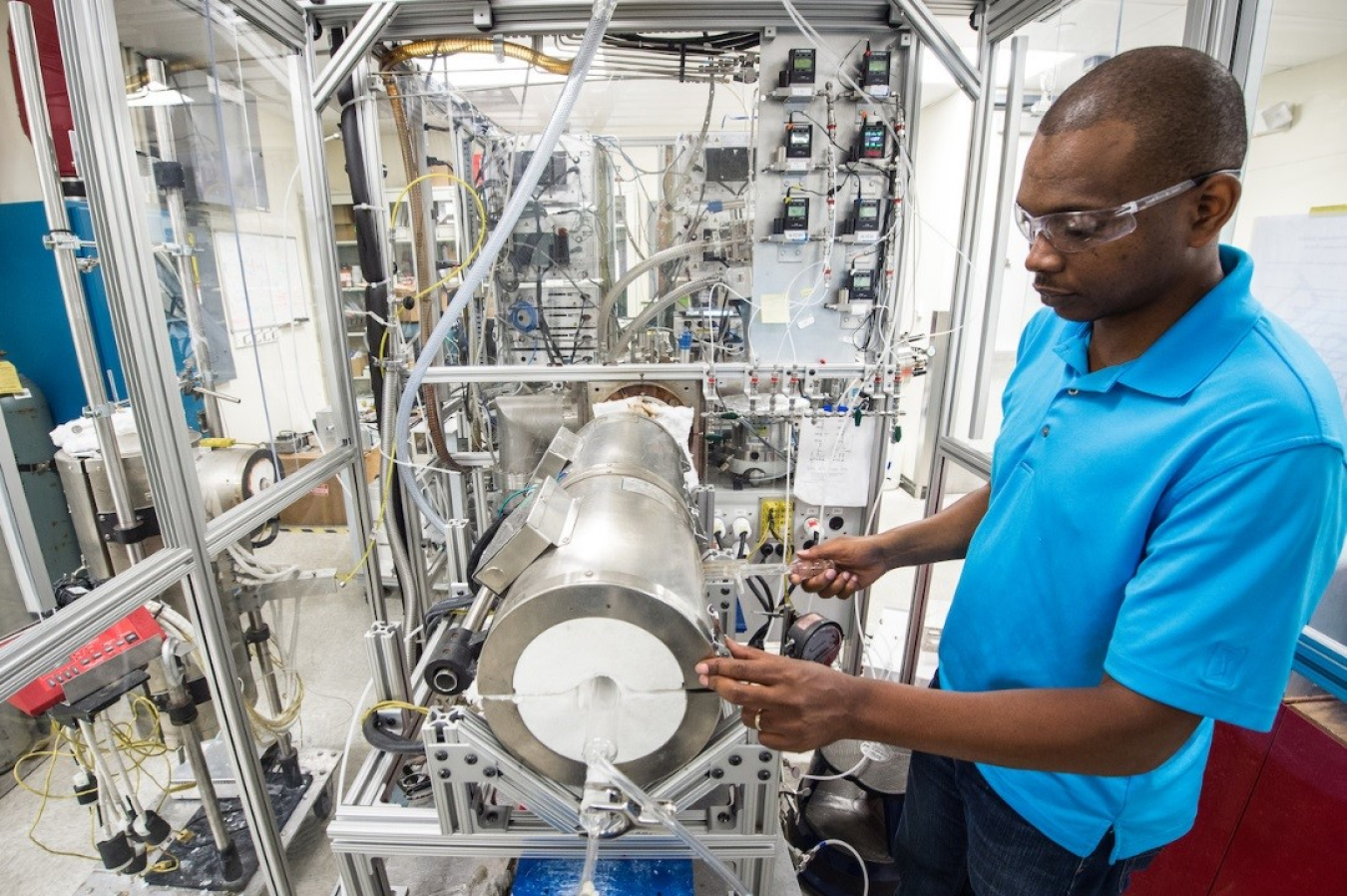
Photo courtesy of Dennis Schroeder | National Renewable Energy Laboratory.
The job of chemical/biological engineer is a mid-level position in bioenergy, in the engineering and manufacturing career sub-sector. Job seekers with engineering and manufacturing backgrounds or a career in engineering could consider this type of mid-level bioenergy job.
Chemical/biological engineers work as staff specialists to conduct progressive research to improve the economics and efficiency of advanced biomass conversion using microbial physiology, fermentation, enzymatic hydrolysis systems, processes monitoring and control, and thermochemical processes and catalytic cracking. People in these positions may have careers in bioenergy chemical or biological engineering.
Chemical/Biological Engineer
| Alternate Title(s) | Biochemical Engineer; Agricultural Engineer Biochemist; Physical Scientist |
| Education & Training Level Description | Master’s degree in Chemical, Biological, Agricultural, or Environmental Engineering, Biochemistry, Microbiology, Physics, or related field. |
| Experience | 3–10 years |
| Job Skills |
|
| Job Profile | A critical goal for the bioenergy industry is to develop commercially viable and sustainable technologies for converting biomass feedstocks into finished liquid transportation fuels (e.g., renewable gasoline, diesel, and jet fuel) as well as bioproducts (chemicals and materials) and biopower. With a strong foundation in chemistry, the biological sciences, and process engineering, biological and chemical engineers are in a unique position to deliver the key innovations that will drive the bioenergy industry forward. Biological and chemical engineers apply their knowledge and understanding of the principles of biochemistry, cellular biology, molecular biology, physics, and engineering to develop, design, optimize, and eventually scale up processes that make use living cells, thermodynamics, chemical catalysts, microorganisms, or biological molecules (e.g., enzymes) for the production of biofuels and bioproducts. Critical advances in conversion technologies can take the industry from the research stage to pilot scale, and eventually to large-scale commercialization. Closely related to biological engineering is the equally important field of agricultural engineering. Individuals within this specialization apply their knowledge of biology, genetics, horticulture, natural resources, and crop science to enhance the productivity of biomass feedstocks and design agricultural systems that protect natural resources. Agricultural engineers can also help develop technologies for the cost-effective harvest, collection, preprocessing, storage, and transport of diverse biomass resources. At the middle levels, chemical and biological engineers work as staff specialists to conduct progressive research to improve the economics and efficiency of advanced biomass conversion using thermochemical processes and catalytic cracking, microbial physiology, fermentation, enzymatic hydrolysis systems, and processes monitoring and control. A master’s degree in a professional engineering discipline is recommended. Significant experience in the field and professional licensure may substitute for additional education. |
More Mid-Level Engineering and Manufacturing Jobs in Bioenergy
Related Bioenergy Career Resources
Bioenergy Career Exploration Wheel

